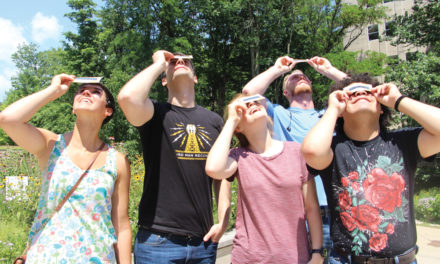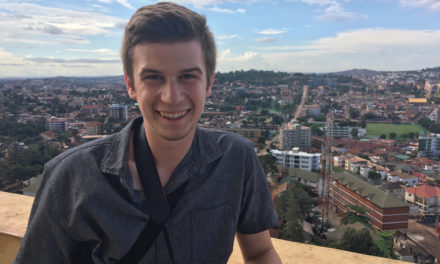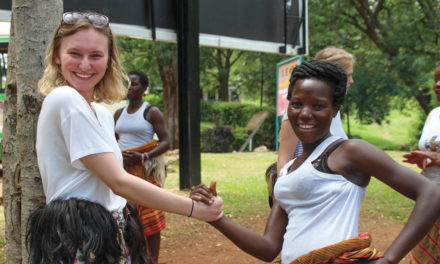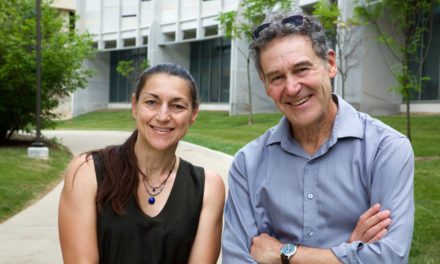
by ROSIE PIGA PIZZO
Of the 80 students to graduate from the Indiana University Bloomington School of Nursing this year, Larry Wilson is one of 11 men and the first black male to receive a degree from the Bloomington campus, which has been conferring nursing degrees since 2005.
“It’s definitely an accomplishment,” says Wilson, an Indianapolis native. “I’m fortunate and humbled, but it’s also bittersweet that it took this long. It makes me sad that other black males didn’t have this opportunity.”
According to John Simmons, communications manager for the IU Bloomington School of Nursing, the first African American male to graduate from the IU School of Nursing received his degree in 1973 from IUPUI.
Wilson recalls orientation for his nursing class. “I kept looking at the door, waiting and hoping for another black male to walk in.” It didn’t happen. “It never occurred to me that there never had been a black male [nursing] student [at Bloomington],” Wilson says.
“There were three black students in Wilson’s graduating class, and three Latino students. One of them, Mark Casanova, is the first male Latino to graduate from the IUB School of Nursing. “We need a diverse picture to give better care for our patients,” Wilson says. (Casanova declined to be interviewed as he was preparing for his professional licensing exam.) Simmons says the first Latino male nursing graduate was from IU Northwest in 1987.
The IU School of Nursing started in 1914 as the Indiana University Training School for Nurses in Indianapolis, Simmons says. Bachelor’s degrees were first awarded in 1950; the school became the IU School of Nursing in 1956. Students began enrolling on the Bloomington campus in 1957, where they completed their initial studies, but transferred to Indianapolis for clinical training. The inaugural class of nursing students to graduate from the Bloomington campus matriculated in the fall of 2001.
Wilson believes that increased diversity begins when students first come to campus. “When you go to college, you often don’t have aspects that remind you of home. You want to be in a place that’s comfortable,” Wilson says. “Colleges need to make it more comfortable for minorities to take advantages of all the opportunities.”
After passing his boards and applying for his license, Wilson plans to move to Chicago and work in an emergency room.
“It’s a fast-paced environment with a variety of patients,” Wilson says.
“That fast-paced thinking suits me.”









